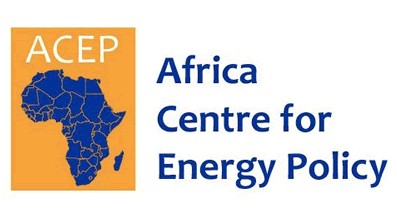ACEP urges government to review existing petroleum agreements
 The Africa Centre for Energy Policy (ACEP), a policy think tank, has urged government to review existing petroleum agreements to ensure that those who are not complying with the minimum work obligations are sanctioned.
The Africa Centre for Energy Policy (ACEP), a policy think tank, has urged government to review existing petroleum agreements to ensure that those who are not complying with the minimum work obligations are sanctioned.
The Centre said this should be done in an open and transparent manner to provide assurance to prospective investors that sanctions were being applied to genuinely defaulting companies.
ACEP suggested that future petroleum agreements should detail out the specific activities and timelines within each phase to ensure that activities were spread within a defined schedule.
“This will reduce the tendency for companies to wait until the end of a particular phase before they rush to site to work,” it added.
The recommendation was part of a report on petroleum contracts monitoring conducted by ACEP and funded by Department for International Development under the ‘Strengthening Action against Corruption Ghana’ programme aimed at reducing corruption in the country’s public sector.
The report urged the Ghana National Petroleum Commission to be firm in monitoring their partners to comply with the contract terms, saying if contractors fail to deliver on their work programme at any particular phase; the Commission should demand the payment of the unspent balance of the minimum expenditure requirements.
The report also charged the Petroleum Commission to institute a transparent monitoring process to allow independent monitoring by civil actors.
Mr Benjamin Boakye, the Executive Director of ACEP, who made the presentation of the report in Accra, said the report examined the existing non-producing petroleum agreements to measure the performance of the agreements against work obligations of the companies involved.
This, he explained, would form the baseline for subsequent monitoring of petroleum agreements in the country by ACEP.
Mr Boakye said contracts were important for an oil resource rich country like Ghana to bridge the financing and technology gap, since such contracts become the link between the resource owner and the owner of capital to facilitate the extraction of the resource.
He said the findings of the report revealed that most of the companies had not delivered on the agreements signed with the country and that some of the companies had refuge in the preliminary ruling of the International Tribunal for the Law of the Sea (ITLOS) which placed injunction on field operations in the disputed area until the determination of the case between Ghana and Ivory Coast.
Source: GNA
